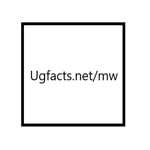Unicaf University Malawi Master of Arts in English Language and Literature
Unicaf University Malawi MA in English Language; Programme Aims and Objectives
Introduction of the Programme
The Programme has been developed to provide students with an outstanding postgraduate experience in the field of English Language and Literature. MA English Language and Literature offers a varied and distinctive range of areas of study, including contemporary literary studies, critical and cultural theory, gender, memory, trauma, and postcolonial studies. It provides students with a range of transferable skills to meet the requirements of the professional workplace and prepares them for further study at PhD level.
Rationale of the Programme
The MA in English Language and Literature focuses on narratives in relation to their literary andcultural contexts. Students will study a number of different works by a variety of authors, written in a range of historical periods. The degree combines literary theory, reading comprehension and critique, language and philology. It allows students to develop advanced written skills, analytical abilities and an understanding of how to compose a successful narrative. These skills prepare graduates for employment in a range of fields and create a strong foundation for further academic pursuits.
Aim of the Programme
The aim of the programme is to offer students the opportunity to examine literary, theoretical and critical texts of a variety of genres and periods, from different cultural contexts, fostering advanced skills of comprehension, interpretation and analysis.
Objectives of the Programme
The objectives of the Programme are to:
1. demonstrate advanced skills in critical engagement with the historical and theoretical frameworks;
2. recognize the artistry and utility of the English language through the study of literature;
3. conduct research focusing on literary and cultural texts of different historical periods, cultural contexts, and genres;
4. demonstrate intellectual flexibility, creativity, and cultural literacy in formulating cohesive and persuasive arguments;
5. illustrate an appropriate level of expertise in literary history, literary theory, and rhetoric theory;
6. employ effectively the language of the discipline;
7. demonstrate knowledge of literary terms, major periods, authors, genres and theories.
Programme Learning Outcomes
On successful completion of this programme students will have knowledge and understanding of:
a) demonstrate a clear understanding of primary literary texts and a familiarity with
the culture, genre, and historical context they belong to;
b) account for the role of context in the production, reception, and transmission of literary and cultural texts across historical periods, geographic or national spaces, and cultural differences;
c) identify and critically engage with the major theoretical schools and modes of discourse in the field
d) apply a variety of approaches of theoretical schools and modes of discourse to the reading and analysis of a variety of texts;
e) interpret and evaluate critical ideas, values, and themes that appear in literary and cultural texts and understand the way they inform and impact culture and society;
f) demonstrate mastery of the discipline as regards the development and current practices of literary studies and rhetoric;
g) describe different approaches to culture, nationalism, multiculturalism, migration, gender and race in the context of postcolonial societies;
h) demonstrate advanced knowledge and understanding of selected approaches and theories in the field of gender studies;
i) analyze the ways in which gender and sexuality organize social structures, cultural practices and identity;
j) read and write critically to a high level of proficiency;
k) illustrate creativity through expanding their creative boundaries and demonstrate a unique writing voice;
Programme Outline
Core requirements (required modules)
